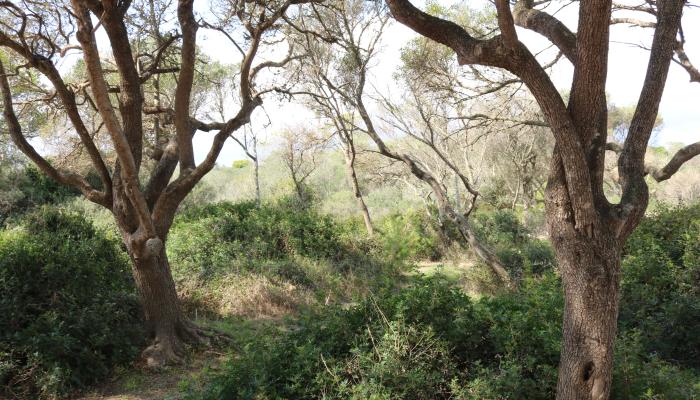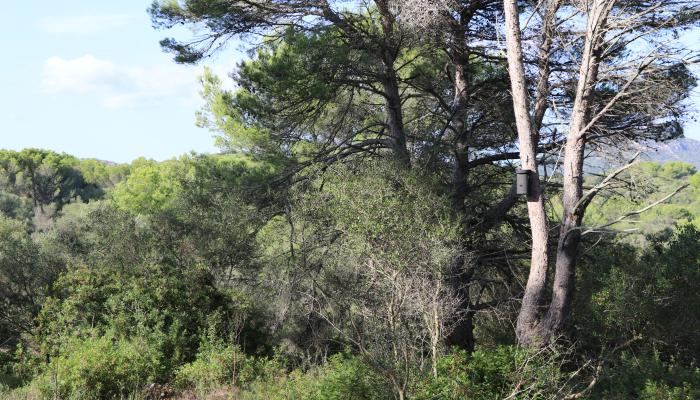
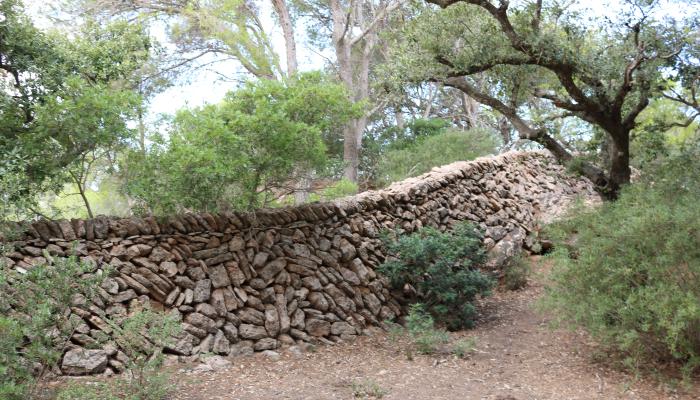
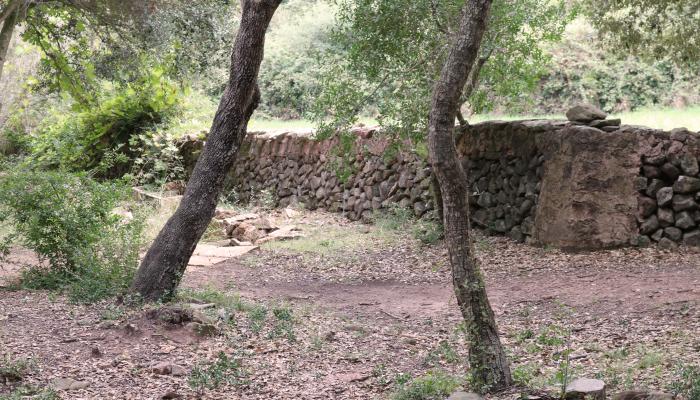
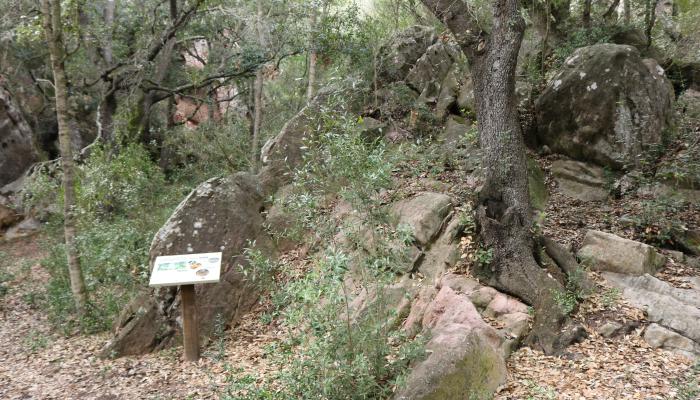
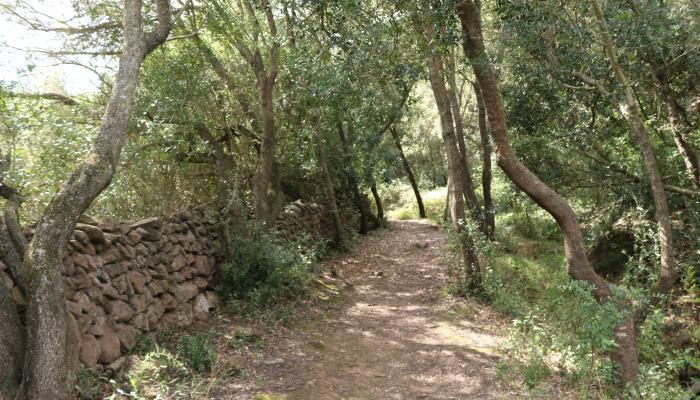
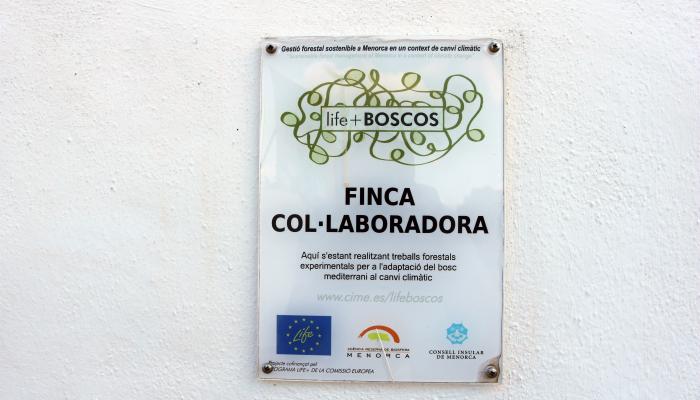
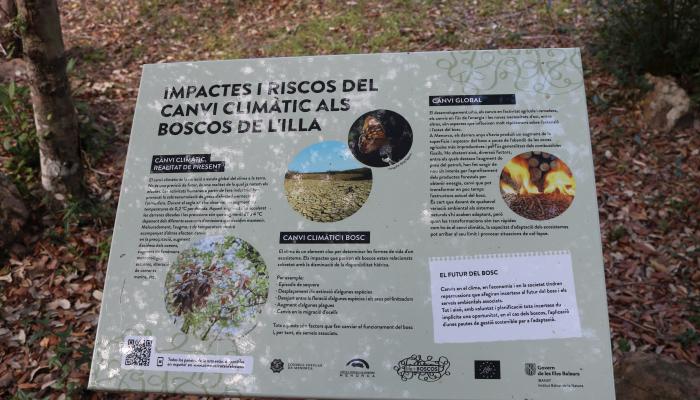
The LIFE BOSCOS Menorca project, launched in January 2009 by the Menorca Island Council, has as its central objective the adaptation of Mediterranean forest ecosystems to the adverse impacts of climate change through sustainable forest management practices. This five-year project seeks to directly address the challenges imposed by climate change on Menorca, an island that, due to its geography and climate, faces unique environmental risks that require specific adaptive solutions.
The LIFE BOSCOS approach is particularly relevant given the predicted increase in the frequency and intensity of extreme events such as droughts and wildfires, which are particularly damaging to island forest ecosystems. Moreover, the project has a strong component of community participation and inter-institutional collaboration, engaging private landowners, forest managers and various social agents to promote forest management that is both ecologically and socially sustainable.
The Mediterranean islands are particularly susceptible to the effects of climate change. All models agree on predicting an increase in water stress and its associated risks for this region: drought, pests, fires, and those linked to the changes in ecological conditions (extinction of species, desynchronization of mutualisms, alteration of biodiversity and phenological changes). Insularity is also a factor that will increase the vulnerability associated with these effects.
In addition to the changes related to the acceleration of climate change, socioeconomic changes (livestock crisis, increase in recreational activities, energy crisis, economic crisis) are also contributing factors, outlining a scenario of significant transformation in the island's forest structure that may affect the adaptive response capacity of forest communities and jeopardize the ecosystem functions and services of supply. regulation and cultural.
General objective:
- To contribute to the adaptation of the Mediterranean forest ecosystems of Menorca to the negative impacts of climate change, through sustainable forest management.
Partial objectives:
- Demonstrate the feasibility of reducing the vulnerability of forest systems to climate change through forest management actions conducted on private farms.
- Develop forest management guidelines at the island level, with governance and participation criteria, which allow forest ecosystems to adapt to climate change scenarios.
- Train owners, managers and other social agents linked to forests in aspects related to sustainable forest management and good forestry practices.
- Raise awareness of society at large about the values of forests, the impacts of climate change and the role of sustainable forest management in this context.
- Information and analysis of the effects of climate change on Mediterranean forest areas
- Developing forest management guidelines at the island level
- Drafting of pilot plans for forest management of farms
- Implementing of pilot tests of forest management plans on farms
- Conducting an environmental assessment of the implementation of forest management guidelines
- Evaluating the cost-efficiency of actions
- Analysing the non-implementation of guidelines
- Training managers
- Informing the public.
- Disseminating results
Execution of pilot tests: on ten farms, silvicultural actions were conducted on 22.30 hectares of forest and improvements were made on 581 meters of stone walls.
- Reducing competition among trees
- Reducing scrub cover
- Encouraging pasture growth (allowing entrance for livestock)
- Promoting seed regeneration
- Conducting sanitary treatments (pruning)
- Conducting Hydrological restitution
Ecological Resilience: The project is designed to strengthen the resilience of Menorca's forests through the implementation of management techniques that not only mitigate the effects of climate change, but also promote the recovery and maintenance of biodiversity. This includes actions such as reducing tree density to decrease competition for limited resources and increase resistance to pests and diseases.
Water Resource Sustainability: In a context where water stress is a growing problem, LIFE BOSCOS implements practices that improve water use efficiency and soil conservation, helping to maintain the hydrological balance of forest ecosystems and mitigating the effects of drought.
Governance and Community Participation: The project emphasizes the importance of participatory governance in forest management, integrating landowners and other local actors in the decision-making process. This ensures that adaptation measures are accepted and effective, reflecting the needs and priorities of the local community.
- Developer: Agency Menorca Biosphere Reserve
- Administration: Ministry of Agriculture, Environment and Territory of the Government of the Balearic Islands.
- Other research centres: Menorcan Institute of Studies and Socio-environmental Observatory of Menorca
- University: Scientific committee of the project, with staff from the University of the Balearic Islands, Generalitat Catalunya, Forest Technology Centre Catalonia, Alcalá Henares University
- Other entities involved: Project monitoring committee, which is made up of social agents on the island, including the Balearic Ornithological Group, Unió de Pagesos, Forestry Business Association, Menorca Excursionists Union, etc.
The awareness-raising and dissemination actions that have been conducted include:
- Guide to good forest management practices for adaptation to climate change in Menorca
- Training Seminar on Forest Management for Climate Change Adaptation: Challenges and Opportunities
- Manual for the preparation of forest management plans
The incorporation of practical pilot actions into the project, on which have been subject to subsequent monitoring, has made it possible to conduct an initial evaluation and redefinition of the guidelines for planning and management of Menorca's forests in the face of climate change.
In addition, the information obtained has been shared within the agroforestry sector of the island and at seminars and congresses, with the aim of promoting sustainable and adaptive forest management of the forests of Menorca, and by extension, throughout of the Mediterranean basin, to climate change.
During the development of LIFE+BOSCOS, equal importance has been given to the implementation of direct actions to improve the planning and forest management of the island (the what) and to the development of governance tools in the application of these measures (the how).
For example, work has been done on the participation of society in decision-making; in establishing formulas for relationship and collaboration between farmers and owners; on making the economic and social activity of the forest compatible without compromising its conservation, and, finally, instruments have been developed to improve coordination between the competent administrations in the management of the territory.
Total project cost: €1,145,000 (€571,000, EU contribution)
The additional benefits of the project have mainly occurred in three main areas:
Environmental awareness in terms of contributing to a greater environmental understanding of the effects of climate change and its impact on environmental services in general. In this regard, a demoscopic study was conducted at the beginning of the project and at the end of it, which is available on the project website.
Another important additional benefit has been the adjustment and introduction of publicly funded measures for the agricultural sector that contribute to improving the adaptation of forest systems to climate change. Specifically, the knowledge generated in the cost/benefit studies of the pilot farms has been used to transfer it to all the farms on the island through the Biosphere Reserve Agricultural Contract (public call that recognizes the environmental services of farmers).
A third environmental benefit has been to improve the social understanding of the diagnosis of the forestry sector. As a result of the participation meetings to define the adaptive forest management guidelines, it was possible to advance in the mutual understanding of the different sectors involved.
The project used a planning tool, such as the Forest Management Plans, but, additionally, it made a concrete contribution so that these tools incorporate adaptive management actions for climate change with the publication of the Manual for the preparation of forest management plans.
Furthermore, the drafting and approval of the Forest Plan of the Balearic Islands took place in parallel with the execution of the LIFE-BOSCOS project. The incorporation of climate change as a factor to be considered is included within:
AXIS II.- ENVIRONMENTAL SAFETY
CHALLENGE 2.- FOREST MANAGEMENT AND SILVICULTURE ADAPTIVE TO THE FORESEEABLE EFFECTS OF CLIMATE CHANGE
January 2009 - June 2015
- Plaça Biosfera nº 5, 07703 Maó Islas Baleares
- life.boscos@cime.es / medi.ambient@cime.es / reserva.biosfera@cime.es



